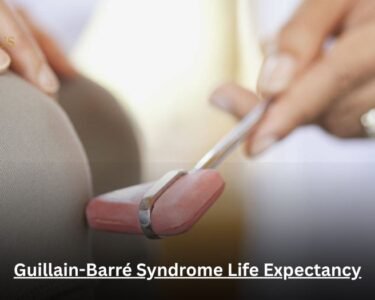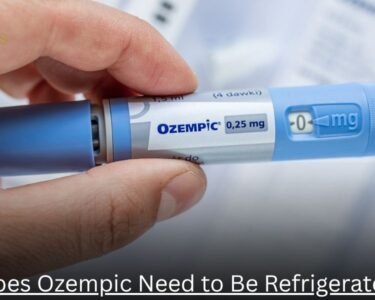Introduction: Understanding the Boil Water Advisory in Harrisburg PA
Is the boil water advisory just an official notice, or is it a serious threat to your family’s health? A Boil Water Advisory in Harrisburg PA, immediately signals a severe health risk to the residents. Water quality concerns arise when pressure drops or when contaminants possibly enter the system.
This warning mandates that all tap water must be boiled before use. Failure to follow these rules exposes your family to dangerous bacteria and other microorganisms.
This article details the specific areas affected and provides essential steps for staying safe until the crisis passes.
Harrisburg Neighborhoods Impacted by the Boil Water Advisory
A boil water advisory Harrisburg neighborhoods alert focuses on specific zones, not the entire city. The utility isolates the issue to minimize the impact on surrounding residents.
It’s crucial to confirm if your home address falls within the affected boundaries. If you live on a border street, check for official alerts from Capital Region Water (CRW).
Specific Affected Streets and Service Boundaries
This recent advisory specifically impacts addresses along the following central streets:
- Carlisle Street: This affects properties between certain cross-streets, often linked to the core low-pressure zone.
- Holly Street: Residents on this street must follow all boiling mandates immediately.
- Derry Street: The advisory covers the sections of Derry Street served by the compromised main line.
In my opinion, these localized advisories usually indicate a specific break in an older main line. The geographical clustering of the affected streets points toward a single, localized infrastructure failure that caused a dangerous drop in water pressure.
Reason for the Boil Water Advisory in Harrisburg
A boil water advisory Harrisburg is never issued lightly. It happens when the public water system experiences an event that could introduce harmful pathogens.
The most common cause is a severe pressure drop within the distribution lines. When pressure falls below 20 psi, outside contaminants like soil, wastewater, or bacteria can get sucked into the pipes.
Other potential reasons include:
- Water Main Break: A pipe breaks, leading to a sudden pressure drop and creating an entry point for microbes.
- System Failure: A pump or treatment system fails, meaning the water did not receive adequate disinfection.
- Testing Protocol: Advisories are also issued preemptively after repairs. This allows the utility time to test new water samples for safety before giving an all-clear.
The goal is to prevent illness caused by common contaminants like E. coli, Giardia, or Cryptosporidium. These organisms can cause severe gastrointestinal distress.
Essential Steps: What Residents Should Do During the Advisory
The most important thing to do is to stop using unboiled tap water for consumption immediately. You must maintain this practice until the advisory is officially lifted by Capital Region Water. Proper safety steps apply to much more than just drinking water.
Detailed Guidelines for Safe Water Boiling
Follow these simple instructions to make your water safe for consumption:
- Bring Water to a Rolling Boil: Heat the water on the stove until it reaches a vigorous, rolling boil.
- Boil for One Minute: Keep the water boiling for a full minute. This kills most harmful bacteria and protozoa.
- Cool Safely: Allow the water to cool naturally before using it. Store the cooled, boiled water in clean, covered containers.
Quick Tip: Water boils faster in smaller batches. Use a clean kettle or pot with a lid to speed up the process and prevent recontamination.
Safe Temporary Alternatives to Boiling Water
Boiling is not always practical for high-volume use. Consider these alternatives for daily tasks:
- Bottled Water: Use commercial bottled water for drinking, cooking, and mixing baby formula.
- Boiled Water: Reserve cooled, boiled water for tooth brushing and pet consumption.
- Disinfection Tablets: Use chemical disinfection tablets only if boiling or bottled water is unavailable. Follow the directions exactly.
Proper Sanitation of Ice, Dishes, and Food Prep Surfaces
The advisory affects all water contact points. You must take extra care with household chores:
- Ice: Discard all ice made with tap water during the advisory. It is not safe.
- Dishes: Use hot, soapy water to wash dishes. A dishwasher that uses high heat settings and a drying cycle is generally safe. Hand-washed dishes should be sanitized with boiled water if you doubt the water quality.
- Food Preparation: Wash all raw produce with boiled or bottled water. Do not use tap water to rinse vegetables or salad greens.
Health Risks and Who is Most Vulnerable
Consuming contaminated water can lead to waterborne illnesses. These diseases cause symptoms like diarrhea, vomiting, stomach cramps, and dehydration. While most healthy people recover quickly, certain populations face severe risks.
Who is Most at Risk?
- Infants and Young Children: Their immune systems are still developing, making them highly susceptible.
- The Elderly: Older adults often have weakened immunity and may become severely dehydrated.
- Immunocompromised Individuals: This includes people with cancer, HIV, or those taking immunosuppressive drugs. They should be extremely cautious.
From my experience, quick communication is essential here. If you or a family member experiences symptoms after drinking tap water, call your doctor immediately. Do not wait for the advisory to lift. The severity of illness depends on the specific microbe that enters the system.
Testing and Lifting the Advisory: What to Expect Next
The advisory remains in effect until Capital Region Water confirms the water is safe. This requires two sets of clean test results, usually taken 24 hours apart. This process typically takes between 48 and 72 hours from the time the main break is repaired.
The Testing Process and Estimated Duration
- Repair Completion: Crews first complete the necessary pipe repairs.
- Sampling: Technicians collect samples from multiple points in the affected boil water advisory Harrisburg PA zone.
- Lab Analysis: The samples go to a certified laboratory to test for indicator bacteria, like E. coli.
- Confirmation: The advisory is lifted only after two consecutive sample rounds show no contamination.
Steps to Follow When the Advisory is Officially Lifted
Do not assume your water is safe right after the announcement. You must flush your plumbing system to remove any remaining contaminated water.
- Flush Cold Water Faucets: Run all cold water faucets for at least five minutes.
- Flush Hot Water Tanks: Drain and refill your water heater if it was used during the advisory.
- Flush Refrigerator Water Lines: Discard water and ice from your refrigerator dispenser. Flush the line by dispensing several gallons of water.
Official Sources for Boil Water Advisory Harrisburg PA Updates
Staying informed is your best defense against illness. Always rely on official utility and government channels for updates. HMH Joseph M. Sanzari Children’s Hospital at HUMC often coordinates with local health departments during these events.
Capital Region Water Announcements and Alerts
Capital Region Water (CRW) issues the official alert and the all-clear notification. They use several channels to reach residents in the boil water advisory Harrisburg neighborhoods:
- Website: CRW posts status updates directly on their homepage.
- Email/Text Alerts: Sign up for the CRW alert system to receive immediate notifications.
- Social Media: Check official CRW social media channels for real-time posts.
Key Contact Information for Questions and Reporting Issues
If you have immediate questions or need to report a new problem, use the official contacts listed below. This information is your direct line to Capital Region Water and emergency services.
| Information Type | Detail |
| Capital Region Water Main Line | 717-232-6885 |
| Emergency Reporting (Leaks/Breaks) | 717-232-3847 (24 Hours) |
| Official Website for Updates | https://capitalregionwater.com |
| Local Health Department | Call 211 for non-emergency public health questions |
Recent Related Boil Water Advisories
It might seem like these advisories are happening more often. My research indicates a trend of increased advisories in older, dense municipalities like Harrisburg. This often relates directly to aging water infrastructure.
Cities across the Northeast face costly challenges in replacing pipes that are 75 to 100 years old. Breaks are more frequent in these older, brittle systems, especially during extreme temperature swings.
Understanding the infrastructure challenge helps explain why your community gets these alerts.
Conclusion: Staying Safe in Affected Harrisburg Neighborhoods
Responding quickly to a boil water advisory Harrisburg neighborhoods alert protects your health and safety. The advisory on Carlisle, Holly, and Derry Streets, while inconvenient, is a necessary precaution.
You must continue to boil water until Capital Region Water issues the official all-clear. By following the simple boiling and sanitation steps, residents ensure the safety of their families.
Staying informed through official channels is the most important step during any water quality emergency.
Frequently Asked Questions (FAQs)
Can I take a shower during a boil water advisory?
Yes, you can shower or bathe safely. Avoid swallowing any water, especially when bathing infants or toddlers. The primary risk comes from consumption, not skin contact.
Is it safe to wash clothes in tap water?
Yes, washing clothes is generally safe. Laundry processes and detergents do not pose an ingestion risk. The bacteria and viruses are not absorbed through clothing fibers.
Should I boil the water for my pets?
Absolutely. Pets can become sick from the same contaminants as humans. Give your pets cooled, boiled water or bottled water only.
Do my home water filters make the water safe?
No, standard carbon or pitcher filters do not remove bacteria or viruses. You must still boil the water before running it through a filter.
What should I do when the advisory is officially over?
You must flush your home’s water lines. Run all cold taps for five minutes. Dispose of all existing ice. Clean and sanitize any appliances that use tap water.
Important Sources & References
- https://www.cdc.gov/water-emergency/about/index.html (Centers for Disease Control and Prevention, How to Make Water Safe in an Emergency)
- https://www.epa.gov/ground-water-and-drinking-water/national-primary-drinking-water-regulations (U.S. Environmental Protection Agency, Drinking Water Quality Standards)
- https://capitalregionwater.com/emergency-alerts/ (Capital Region Water, Official Alerts and Notifications)
- https://cdn.ymaws.com/www.gawp.org/resource/resmgr/bwa_toolkit/boil_water_advisory_toolkit_.pdf (Georgia Association of Water Professionals, Boil Water Advisory Toolkit, N.D.)
- https://www.usgs.gov/mission-areas/water-resources (U.S. Geological Survey, Water Resources Overview and Research)
- https://restaurant.org/education-and-resources/resource-library/what-to-do-when-a-boil-water-advisory-is-issued/ (National Restaurant Association, Advisory Guidelines for Food Service)
- https://capitalregionwater.com/contact/ (Capital Region Water, Main Contact and Emergency Reporting, 2024)
- https://www.ready.gov/water (Ready.gov / FEMA, Emergency Water Preparedness Guidelines, 2024)



